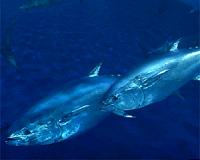 |
Washington DC (SPX) Apr 26, 2010 An Agricultural Research Service (ARS) scientist may have found a way to cut the amount of ammonia produced by cattle. To do it, he's using a key ingredient of the brewer's art: hops. Cattle, deer, sheep, goats and other ruminant animals depend on a slew of naturally occurring bacteria to aid digestion of grass and other fibrous plants in the first of their four stomach chambers, known as the rumen. The problem, according to ARS microbiologist Michael Flythe, comes from one group of bacteria, known as hyper-ammonia-producing bacteria, or HABs. While other bacteria are helping their bovine hosts convert plant fibers to cud, HABs are breaking down amino acids, a chemical process that produces ammonia and robs the animals of the amino acids they need to build muscle tissue, according to Flythe, who works at the ARS Forage Animal Production Research Unit (FAPRU) in Lexington, Ky. To make up for lost amino acids, cattle growers have to add expensive and inefficient high-protein supplements to their animals' feed. According to Flythe, hops can reduce HAB populations. Hops, a natural preservative, were originally added to beer to limit bacterial growth. Flythe put either dried hops flowers or hops extracts in either cultures of pure HAB or a bacterial mix collected from a live cow's rumen. Both the hops flowers and the extracts inhibited HAB growth and ammonia production. Flythe and FAPRU plant physiologist Isabelle Kagan have completed a similar project with more typical forage. They recently identified a compound in red clover that inhibits HAB. Results of that study were published recently in Current Microbiology. Flythe also collaborated with FAPRU animal scientist Glen Aiken on a study in which hops had a positive effect on the rumen's volatile fatty acid ratios, which are important to ruminant nutrition. ARS is the primary scientific research agency of the U.S. Department of Agriculture (USDA). This research supports the USDA priority of promoting international food security.
Share This Article With Planet Earth
Related Links Agricultural Research Service (ARS) Farming Today - Suppliers and Technology
 Tuna sushi in US busts recommended levels for mercury: study
Tuna sushi in US busts recommended levels for mercury: studyParis (AFP) April 21, 2010 Tuna sushi bought at a range of US restaurants and supermarkets had mercury that breached levels set by health watchdogs, a study published on Wednesday said. The offending samples included bluefin tuna, the hugely-prized species that has been plunged into a fierce conservation battle, the researchers reported in the British journal Biology Letters. One hundred sushi samples were collect ... read more |
|
| The content herein, unless otherwise known to be public domain, are Copyright 1995-2010 - SpaceDaily. AFP and UPI Wire Stories are copyright Agence France-Presse and United Press International. ESA Portal Reports are copyright European Space Agency. All NASA sourced material is public domain. Additional copyrights may apply in whole or part to other bona fide parties. Advertising does not imply endorsement,agreement or approval of any opinions, statements or information provided by SpaceDaily on any Web page published or hosted by SpaceDaily. Privacy Statement |